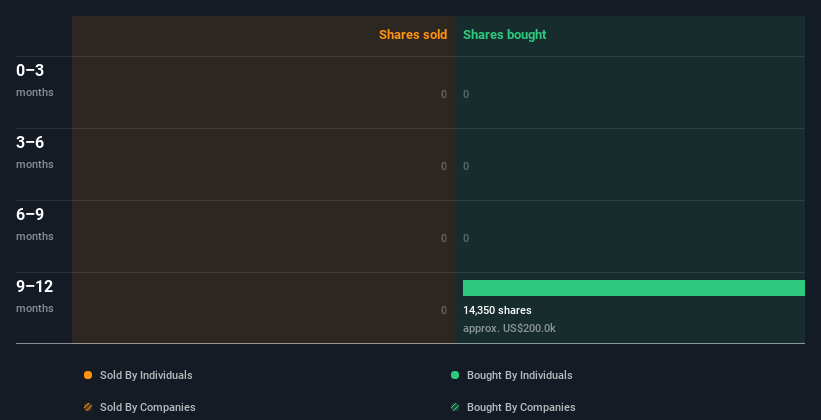- United States
- /
- Food and Staples Retail
- /
- OTCPK:RADC.Q
Insiders who bought in the last 12 months lose an additional US$127k as Rite Aid Corporation (NYSE:RAD) drops to US$281m

Insiders who bought US$200k worth of Rite Aid Corporation's (NYSE:RAD) stock at an average buy price of US$13.93 over the last year may be disappointed by the recent 29% decrease in the stock. Insiders buy with the expectation to see their investments rise in value over a period of time. However, recent losses have rendered their above investment worth US$73k which is not ideal.
Although we don't think shareholders should simply follow insider transactions, logic dictates you should pay some attention to whether insiders are buying or selling shares.
If you're not interested in researching RAD's insider transactions, we have a free list of interesting investing ideas to potentially inspire your next investment!
The Last 12 Months Of Insider Transactions At Rite Aid
In the last twelve months, the biggest single purchase by an insider was when President Heyward Donigan bought US$200k worth of shares at a price of US$13.93 per share. That means that an insider was happy to buy shares at above the current price of US$5.06. While their view may have changed since the purchase was made, this does at least suggest they have had confidence in the company's future. We always take careful note of the price insiders pay when purchasing shares. Generally speaking, it catches our eye when an insider has purchased shares at above current prices, as it suggests they believed the shares were worth buying, even at a higher price. Heyward Donigan was the only individual insider to buy shares in the last twelve months.
You can see the insider transactions (by companies and individuals) over the last year depicted in the chart below. If you want to know exactly who sold, for how much, and when, simply click on the graph below!

There are plenty of other companies that have insiders buying up shares. You probably do not want to miss this free list of growing companies that insiders are buying.
Does Rite Aid Boast High Insider Ownership?
Many investors like to check how much of a company is owned by insiders. Usually, the higher the insider ownership, the more likely it is that insiders will be incentivised to build the company for the long term. Insiders own 4.3% of Rite Aid shares, worth about US$12m. We've certainly seen higher levels of insider ownership elsewhere, but these holdings are enough to suggest alignment between insiders and the other shareholders.
What Might The Insider Transactions At Rite Aid Tell Us?
It doesn't really mean much that no insider has traded Rite Aid shares in the last quarter. However, our analysis of transactions over the last year is heartening. Insiders own shares in Rite Aid and we see no evidence to suggest they are worried about the future. So while it's helpful to know what insiders are doing in terms of buying or selling, it's also helpful to know the risks that a particular company is facing. When we did our research, we found 5 warning signs for Rite Aid (1 is concerning!) that we believe deserve your full attention.
Of course Rite Aid may not be the best stock to buy. So you may wish to see this free collection of high quality companies.
For the purposes of this article, insiders are those individuals who report their transactions to the relevant regulatory body. We currently account for open market transactions and private dispositions, but not derivative transactions.
New: AI Stock Screener & Alerts
Our new AI Stock Screener scans the market every day to uncover opportunities.
• Dividend Powerhouses (3%+ Yield)
• Undervalued Small Caps with Insider Buying
• High growth Tech and AI Companies
Or build your own from over 50 metrics.
Have feedback on this article? Concerned about the content? Get in touch with us directly. Alternatively, email editorial-team (at) simplywallst.com.
This article by Simply Wall St is general in nature. We provide commentary based on historical data and analyst forecasts only using an unbiased methodology and our articles are not intended to be financial advice. It does not constitute a recommendation to buy or sell any stock, and does not take account of your objectives, or your financial situation. We aim to bring you long-term focused analysis driven by fundamental data. Note that our analysis may not factor in the latest price-sensitive company announcements or qualitative material. Simply Wall St has no position in any stocks mentioned.
About OTCPK:RADC.Q
Rite Aid
Through its subsidiaries, operates a chain of retail drugstores in the United States.
Moderate and slightly overvalued.
Similar Companies
Market Insights
Community Narratives



